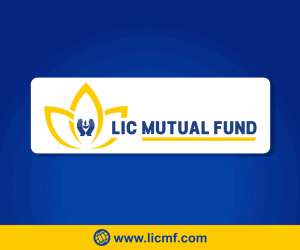How Short Term Debt Mutual Funds are good short term investment solution

Most investors tend to associate stock market with mutual fund investments. As per AMFI, AUM of equity oriented schemes accounted for nearly 70% of total retail AUM. Equity funds and equity oriented balanced funds are essentially long term investments - for short term investment needs, most investors still favor bank term deposits. Bank term deposits or fixed deposits are seen to be safe investment choices for short tenures. FD interest rates have come down over the past two years and even though some banks have hiked FD rates in the last 2 months or so, interest rates are still much lower than what Indian investors usually expect.
FD rates of PSU banks range from 6.5 to 7%, while that of Private Sector banks range from 6.5 to 7.5% for the 1 to 2 years term. FD interest is taxed at the income tax rate of the investor; so the effective return on investment works out to be 4.6 – 5.3%. The average CPI inflation rate forecast ranges between 4.5 – 5% and hence the real return on your FD investment is close to zero or even negative. Consequently, many investors are looking at alternative options for their short term investment needs.
Investors should know that, mutual funds are not only for long term investments, they also offer excellent investment solutions for short tenures. The definition of short term and long term can be subjective, but usually tenure of less than 1 to 3 years can be called a short tenure (investment tenures of less than 1 year are usually classified as ultra-short term). Mutual funds have products that meet investment needs both for short term and ultra-short term tenures, but in this post, we will focus only on short term investments, i.e. investments made for 1 to 3 years.
Debt mutual funds provide short to medium investment solutions for a variety of investment needs and risk capacities. Debt mutual funds invest in commercial papers, certificates of deposits, treasury bills, non-convertible debentures and Government securities (G-Secs) of various maturities. Debt mutual funds provide income like FDs, but unlike FDs, which are risk free, debt mutual funds are subject to market risk. We will discuss bout debt mutual fund risks in more details shortly, but on an average, in different interest scenarios, historically debt mutual funds have outperformed fixed deposits.
Debt mutual fund risks
Almost all debt mutual funds have dependency on prevailing interest rates. The price of debt securities and funds rise when interest rates fall and vice versa. However, the interest rate sensitivity of debt mutual funds varies from scheme to scheme, depending on the maturity profiles of their underlying securities. Longer the maturity of the underlying securities, higher is the interest rate sensitivity of the fund. Long term debt mutual funds which invest in longer maturity bonds are more sensitive to interest rate movements. While long term debt mutual funds outperform in a declining interest regime and give excellent returns, they underperform in a rising interest rate regime.
Short term debt mutual funds, on the other hand, are much less sensitive to interest rate changes. These funds are considered to be all weather funds, because they give relatively stable returns in all interest rate environments. Fund managers of short term debt mutual funds employ accrual strategy; in other words, they hold the bonds in the fund’s portfolio to maturity and accrue the interest paid by the bonds. Since the bondholder receives the face value on maturity, interest rate changes do not have an impact when bonds are held till maturity. However, during the tenure of the bond the price of even short term bonds can change with interest rates, even though the price sensitivity to interest rates is limited. In order to minimize the impact of interest rate changes on absolute returns, short term debt mutual fund investors should match their investment tenures to the maturity profile of the debt fund.
Why are short term debt mutual funds good investment options now?
The last one year has been a difficult period for the bond market. The 10 year Government bond yield bottomed out about 6 – 7 months back and long term debt mutual funds have been underperforming. The 10 year bond yield softened somewhat in March, but has been inching up again in April, up nearly to the 7.4% mark. Though the RBI has maintained a neutral outlook on interest rates in the April monetary policy review meeting, near term risks arising out of global factors remain. The two major risk factors for the interest rates in India are US interest rates and crude prices. However, inflation seems to be in control and the meteorological department has forecasted normal monsoons. Nevertheless, in our view, we have to live with uncertainties in the near to moderate term as far as interest rates are concerned.
Short term debt mutual funds are the best investment options for conservative investors in an uncertain interest rate environment. Short term debt mutual funds tend to do well when interest rates are high and expected to decline because they accrue high yields to maturity and also some price appreciation. They also do well on a relative basis, when interest rates are low and expected to rise, because their returns are not as much affected by interest rate changes as long term debt funds.
Further, in a rising interest environment, short term debt mutual funds may be able to replace short term bonds and commercial papers which are maturing with higher yield bonds and commercial papers. Therefore, in an environment of interest rate uncertainty, such as the one we are currently in now, short term debt mutual funds are the ideal investment solutions for short to medium term investment needs. Over the last 6 months or so, financial advisors are recommending short term debt mutual funds to their clients.
Credit Risks
These funds however may be exposed to credit risk, if they have substantial exposure to lower rated corporate papers. If you want to avoid or minimize credit risk, invest in short term debt mutual funds, which mostly invest in Government bonds (no credit risk) or corporate papers of high credit quality (AAA or AA). You can check the credit quality profile of the fund in the fund factsheet. Some investors may deliberately want to invest in mutual funds, which have some exposure to slightly lower rated papers, because these papers can give higher yields and the fund can give better returns. This sub-category of short term debt mutual funds are known as credit opportunities funds. Credit opportunities funds gave more than 9% average returns in the last one year. You can invest in these funds, if you want slightly higher returns, but you should understand the risk factors very clearly.
Indiabulls short term fund
Indiabulls short term fund is a debt mutual fund which invests in a diversified portfolio of high quality debt and money market securities to generate stable risk adjusted returns with a low risk strategy. The fund manager’s objective is to achieve optimal risk adjusted returns. The target duration of Indiabulls short term fund portfolio is 1 to 3 years, which implies that interest rate risk is limited – the current duration of the fund is 0.81 years, reflecting the conservative attitude of the fund manager.
The overall portfolio construction will seek to play out the shape of the yield curve of different issuer classes. At the current juncture it would invest in short duration segment to benefit from “high carry” and lower volatility. The current yield to maturity (YTM) of the fund portfolio is 9.95%, which is higher than average YTMs of debt mutual funds. With fairly modified duration, the fund can give good risk adjusted returns in the current interest rate environment.
Despite high YTM, the credit quality of the fund is good. Government bonds, which have no credit risk, comprise about 12% of the fund portfolio; money market securities and non-convertible debentures (corporate bonds) comprising the balance. Overall non-convertible debentures comprise the largest portion of the portfolio. The average credit rating of the bond portfolio is AA, which denotes, as per CRISIL, high safety.
Indiabulls short term fund is managed by Malay Shah, who has 14 years of experience in this field. Over the last 3 months, Indiabulls short term fund gave nearly 2% returns, outperforming the average returns of short debt fund category. An additional benefit offered by the fund is zero exit load feature, which means you can withdraw / redeem your investment partially or fully at any point of time, without paying any penalty. However, in our view you should invest in this fund with a 1 to 3 year investment horizon.
Are short term debt mutual funds suitable for longer investment tenures?
Financial advisors usually recommend long term debt mutual funds, income funds, dynamic bonds etc. for longer (3 years plus) tenures. These funds tend to give good returns in the long term, but they can be quite volatile in the short term, when interest rate / yield trajectory is upwards, e.g. the last 6 – 7 months. Many conservative investors want stable income over longer tenures, but do not want high volatility in the short term which can cause intermittent instability.
Some of these conservative investors have asked us in Advisorkhoj, whether short term debt mutual funds are suitable for longer tenures. As discussed earlier, short term debt mutual funds are all weather funds – they provide relative income stability in varied interest rate scenarios. Therefore, we think that short term debt funds, despite the name, are also suitable for longer tenures. Over a three year plus investment tenure, long term debt mutual funds are likely to outperform short term debt mutual funds, but short term debt mutual funds are much less volatile and provide more income stability.
In terms of performance of these two fund categories, we have looked at the returns of both short term and long term debt mutual funds over a three to 5 years period. Over the last 3 years, long term debt funds / income funds gave average 7% annualized returns, while short term debt mutual funds gave average 7.6% annualized returns (Indiabulls short term fund have 7.9% annualized returns).
Over the last 5 years, long term debt funds / income funds gave average 7.8% annualized returns, while short term debt funds gave average 8.2% annualized returns. There will be periods, where top performing long term debt funds can give even double digit returns, which most short term debt mutual funds may find difficult to match, but for conservative investors, short term debt mutual funds are good investment options even for longer investment tenures.
Over a 3 years plus investment tenure, debt mutual funds enjoy a considerable tax advantage over traditional fixed income investment options like bank deposits. While FD interest is taxed as per the income tax rate of the investor, long term capital gains (investment holding period of more than 3 years) in debt mutual funds are taxed at 20% after allowing for indexation benefits. In an inflationary environment, like ours in India, indexation benefits can reduce the tax obligation for investors considerably, especially for the investors in the higher tax brackets.
Conclusion
Our objective in Advisorkhoj is to increase the awareness of investors about different investment products, so that they can put their hard earned money to the most efficient use, without taking too much risk. In this blog post, we have discussed why short term debt mutual funds are excellent investment solutions for short investment tenures. We also discussed why they can also be good investments over longer tenures for conservative investors. You should discuss with your financial advisor, if short term debt mutual funds like Indiabulls short term fund is suitable for your investment needs.
Mutual Fund Investments are subject to market risk, read all scheme related documents carefully.
Queries
-
What is the benefit of mutual fund STP
Aug 29, 2019
-
How much to invest to meet target amount of Rs 2 Crores
Aug 26, 2019
-
Can I achieve my financial goals with my current mutual fund investments
Aug 24, 2019
-
Can you tell me return of various indices
Aug 19, 2019
-
What would be the post tax return on different investments
Aug 18, 2019
-
Which Principal Mutual Fund scheme will be suitable for my retirement corpus
Aug 16, 2019
-
What is the minimum holding period for availing NCD interest
Aug 4, 2019
Top Performing Mutual Funds
Recommended Reading
Fund News
-
Bajaj Finserv Mutual Fund launches Bajaj Finserv Nifty Next 50 Index Fund
Apr 22, 2025 by Advisorkhoj Team
-
Mirae Asset Investment Managers (India) Pvt. Ltd. IFSC branch launches Mirae Asset Global Allocation Fund IFSC at Gift City
Apr 21, 2025 by Mirae Asset Mutual Fund
-
Axis Mutual Fund joins ONDC Network to Expand Access to Mutual Fund Investments
Apr 18, 2025 by Axis Mutual Fund
-
Nippon India Mutual Fund launches Nippon India Nifty 500 Quality 50 Index Fund
Apr 18, 2025 by Advisorkhoj Team
-
Nippon India Mutual Fund launches Nippon India Nifty 500 Low Volatility 50 Index Fund
Apr 18, 2025 by Advisorkhoj Team













